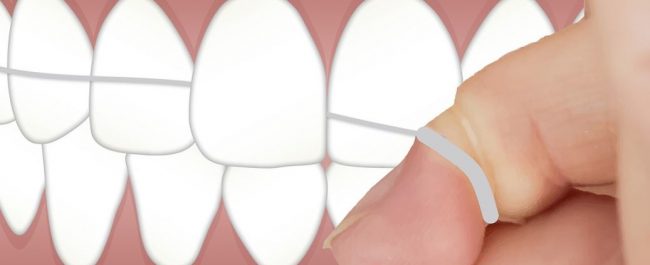What is the Best Type of Dental Floss?
Choosing the right dental floss can be intimidating, especially with so many options out there! When you do end up in the oral care aisle there are a few key things to look for in a dental floss. Depending on whether your teeth are close together or far apart, if you have a hard time getting into your mouth or have changing needs throughout the day, there are plenty of great options.
Why do I need to floss?
Flossing is often one of those things that our dentist harps at us to do, but many of us wave off as not necessary. But flossing actually has very many benefits that make it a task worth doing. Dentists all agree that flossing your teeth is essential not only to maintain your mouth health, but can also affect your overall health!
Flossing your teeth has many benefits including:
- It can help give you fresher breath
- Your floss can reach places your toothbrush can’t
- Your teeth can look brighter and less stained
- Flossing can preserve the bone height of your teeth
- It can prevent gum disease
- Your teeth will be much cleaner than if you only brush alone
Types of Dental Floss
At Reflections Dental in Oakville, our dentists are happy to discuss all your questions related to your oral care including flossing. Whether on your next appointment, or if you’re new to the area and would like to book a visit. We’re Oakville’s dental care professionals!
Choosing a dental floss can seem like a simple choice, until you get into the floss aisle and see all the options available! When it comes down to it, as long as you’re using it every day you really can’t make a wrong choice.
Unwaxed floss: Made of nylon strands twisted together, this thinner floss can easily fit between tight teeth.
Waxed floss: Standard nylon floss that is coated with a light coating of wax is sturdier than unwaxed floss but may not fit between tight teeth very well.
Dental tape: Available both waxed and unwaxed, this wide, flat version of floss is ideal for people whose teeth are further apart.
Polytetrafluorethylene floss (PTFE): Also known as Teflon, this material faces some controversy in the dental community so you’ll want to research before looking for floss with this ingredient.
Super flosses: The stiffer sections on this yarn-like floss are ideal for cleaning around braces or dental bridges.
Flavoured Floss: Available in minty or fruity flavours, flavoured floss can help motivate both kids and adults to floss regularly.
Disposable dental flossers: Disposable flossers don’t have to be kept clean and can help get into tight areas.
Electric flossers: Great for those who have trouble moving the floss around in their mouth, an electric flosser has often shown to be more effective than standard flossing techniques.
How to choose the best dental floss
It’s likely that your floss needs will change over time, so what works best now might not do the same in the future. It’s also common for each member of your family to have different needs. Choosing the right floss can help ensure your mouth health stays in top shape.
Crowded teeth
If you have crowded teeth or teeth that are very close together a thin or standard thickness floss with a waxy coating might be the best choice. The wax coating helps the floss to slide easily between your teeth, especially those that are too close together.
Sensitive Gums
Dental tape- a wider and less abrasive form of floss- is often kinder to sensitive teeth and gums.
If you have braces or bridges
Flossing with a mouth appliance can add a layer of difficulty but a floss threader can help with that.
For kids or those with mobility issues
Flossing can require dexterity and motor skills that kids and some adults may struggle with. Floss picks and disposable flossers can help make flossing easier.
Larger gaps between teeth
Dental tape or super floss can get clean those wider gaps better than standard floss will.
What is the best dental floss?
When it comes down to it, there’s really only one kind of dental floss that wins the fight: the one you use! It really doesn’t matter what kind of floss you use; the important factor is THAT you use it. Flossing your teeth has been shown to help prevent gum disease and significant mouth health concerns and is an important part of your dental routine.


